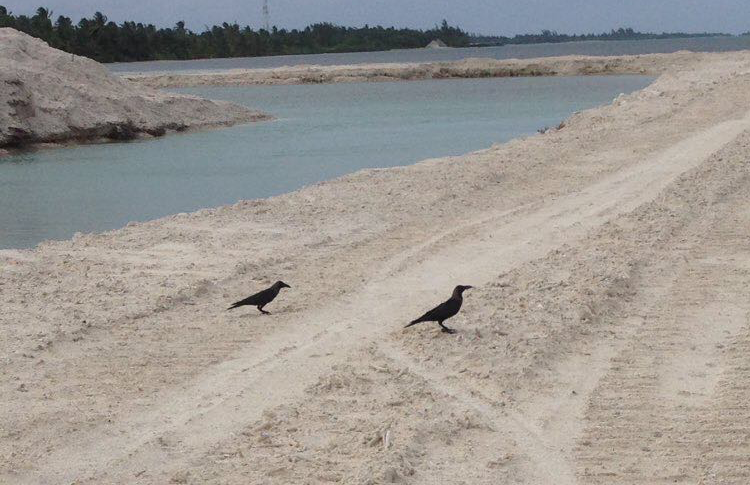Addu City, Maldives – With the increasing number of crow population in Addu City, the fear of Dhondheeni, or more commonly known as Fairy Terns getting eradicated from the city has grown.
Crows, which did not live in Addu for the longest time, due to the high Dhondheeni population who used to chase away any crows that came in Addu’s way, have now started to habituate to the city. While some have shared images of baby Terns being attacked by crows, on social media, many have called upon the authorities to look into the matter and find a solution soon.
In one video taken during August of this year, a crow was seen eating away on a dead White Tern. The individual who published the video demanded authorities to look into the matter and see what or who cause crows to come to the city.
Speaking to local news outlet “adduLIVE” an individual who lives in Meedhoo revealed that a large number of crows can now be seen in almost all parts of Hulhudhoo and Meedhoo. “It has become common to see crows in Hulhumeedhoo. The can be sighted in any part of the islands, and likely are in large numbers.” He said.
While the number of crow population is on the rise in the city, they pose a huge threat on the White Terns, which the local tourism is significantly dependent upon. Many tourists visit the city in hopes to see the white angelic terns gliding over their heads almost as if they are little fairies.
Commenting on the matter, Mayor of Addu City, Abdullah Sodiq said that he has received no information that crows have started habituating in the city, and that if it is the case, this is a serious problem.
While some claim that this is being done deliberately to wipe off the White Tern population from Addu, it can only be known for certain upon a proper investigation.
Recently, Environmental Protection Agency (EPA), along with the City Council and Addu Nature Park have conducted a population survey for White Terns. However the findings have not yet been published.





